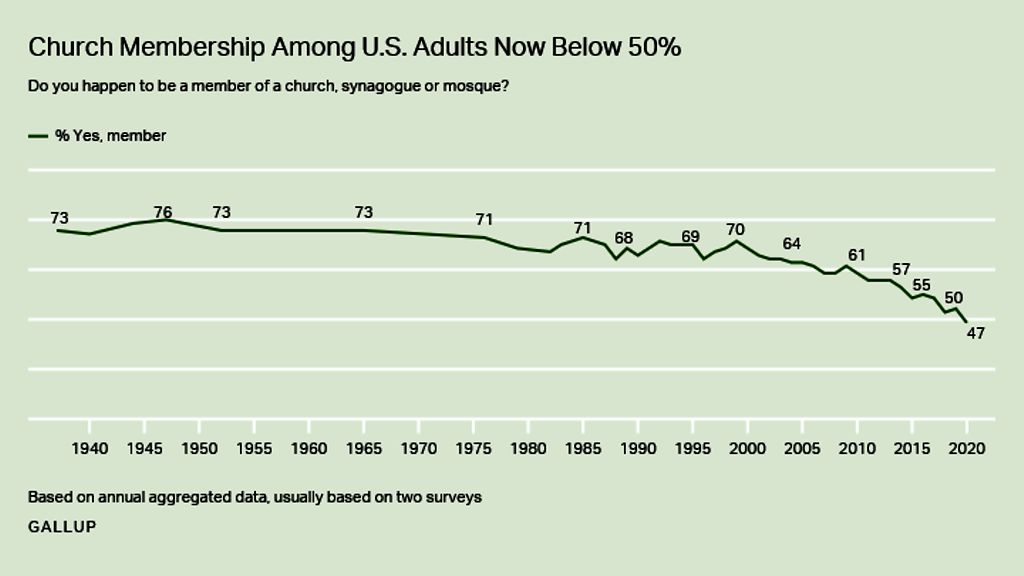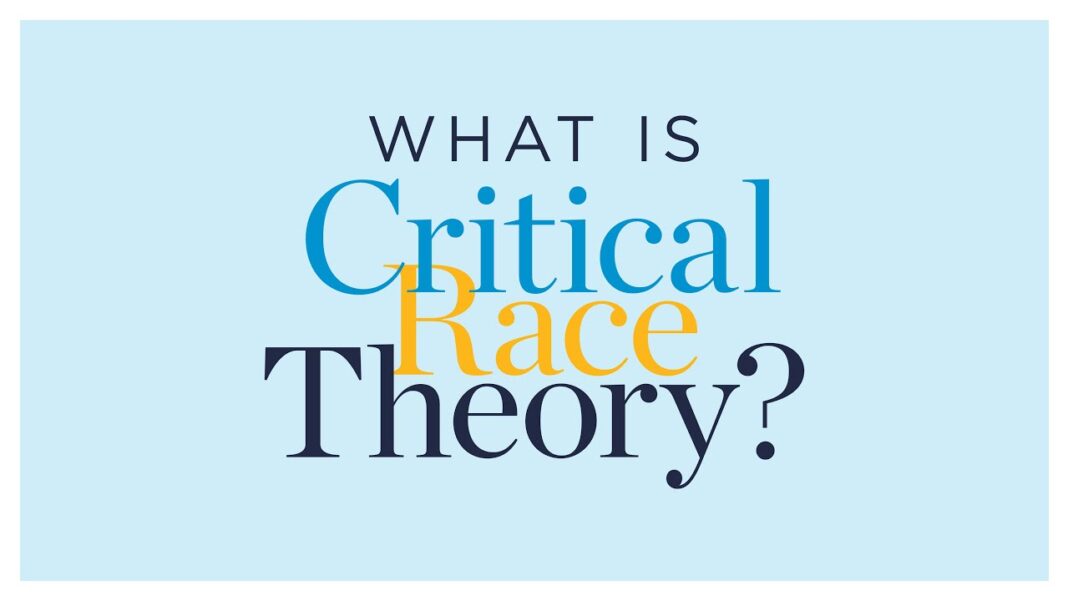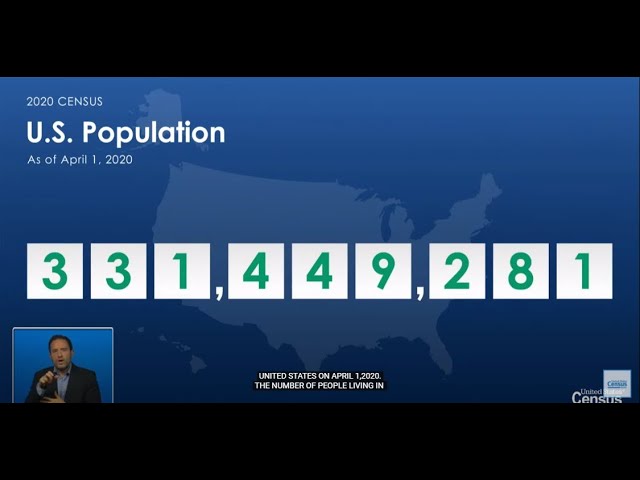“The U.S. remains a religious nation, with more than seven in 10 affiliating with some type of organized religion. However, far fewer, now less than half, have a formal membership with a specific house of worship.”
- In 2020, 47% of U.S. adults belonged to a church, synagogue or mosque
- Down more than 20 points from turn of the century
- Change primarily due to rise in Americans with no religious preference
WASHINGTON, D.C. — Americans’ membership in houses of worship continued to decline last year, dropping below 50% for the first time in Gallup’s eight-decade trend. In 2020, 47% of Americans said they belonged to a church, synagogue or mosque, down from 50% in 2018 and 70% in 1999.
U.S. church membership was 73% when Gallup first measured it in 1937 and remained near 70% for the next six decades, before beginning a steady decline around the turn of the 21st century.
As many Americans celebrate Easter and Passover this week, Gallup updates a 2019 analysis that examined the decline in church membership over the past 20 years.
Gallup asks Americans a battery of questions on their religious attitudes and practices twice each year. The following analysis of declines in church membership relies on three-year aggregates from 1998-2000 (when church membership averaged 69%), 2008-2010 (62%), and 2018-2020 (49%). The aggregates allow for reliable estimates by subgroup, with each three-year period consisting of data from more than 6,000 U.S. adults.








